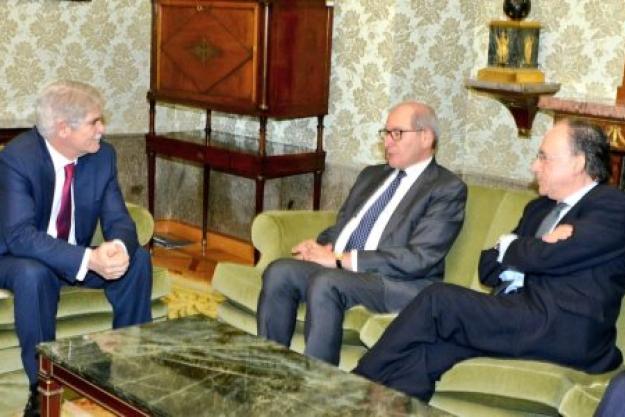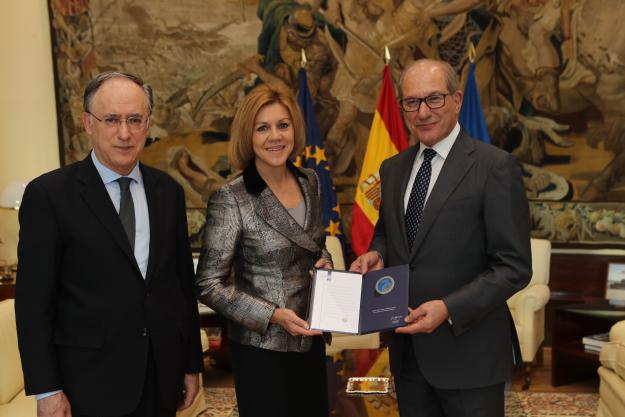
The Director-General of OPCW, Ambassador Ahmet Üzümcü, and OPCW Director-General Designate, H.E. Mr Fernando Árias González, meeting with the Minister of Foreign Affairs and Cooperation of Spain, H.E. Mr Alfonso Dastis, and Minister of Defence, H.E. Ms Maria Dolores Cospedall. Photo taken by MAEC
THE HAGUE, Netherlands — 23 March 2018 — The Director-General of the Organisation for the Prohibition of Chemical Weapons (OPCW), Ambassador Ahmet Üzümcü, accompanied by the OPCW Director-General Designate, Permanent Representative of Spain to the OPCW and Ambassador to the Netherlands, H.E. Mr Fernando Árias González, met with the Minister of Foreign Affairs and Cooperation of Spain, H.E. Mr Alfonso Dastis, and Minister of Defence, H.E. Ms Maria Dolores Cospedal, during a visit to Madrid, Spain on 22 and 23 March.
The Director-General briefed Mr Dastis and Ms Cospedal on the progress and challenges related to the implementation of the Chemical Weapons Convention (CWC), including OPCW’s activities in the Syrian Arab Republic and its efforts to prevent the use of chemical weapons by non-State actors.

Director-General with Mr Dastis and Ms Cospedal
Ambassador Üzümcü also held a separate meeting with the Secretary of State for Foreign Affairs, Mr Ildefonso Castro.
At the International Affairs and Foreign Policy Institute (INCIPE) – whose director is Professor Vicente Garrido – Ambassador Árias introduced the Director-General to the leading representatives of Spanish academia and think tanks, for a discussion on security implications of the global chemical weapons ban established by the CWC.
Background
Spain joined the CWC in 1997 and has been an active supporter of the Convention and OPCW’s activities throughout the years.
As the implementing body for the Chemical Weapons Convention, the OPCW oversees the global endeavour to permanently eliminate chemical weapons. Since the Convention’s entry into force in 1997 – with its 192 States Parties – it is the most successful disarmament treaty eliminating an entire class of weapons of mass destruction.
Over 96 per cent of all chemical weapon stockpiles declared by possessor States have been destroyed under OPCW verification. For its extensive efforts in eliminating chemical weapons, the OPCW received the 2013 Nobel Prize for Peace.
